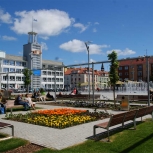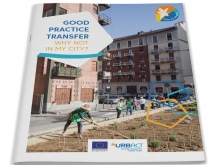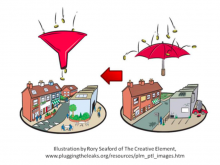
Koszalin
The City of Koszalin covers an area of 98.3km2, with the District of Koszalin covering 1,653km2. Overall, the FUA has a population of over 175,000, with 107,670 of those resident in the City of Koszalin. In terms of demographics, Koszalin has an ageing population with 24.1% of the population being retirement age, representing an increase of a third over the last fifteen years.
Koszalin’s industrial heritage is not one of heavy industry or large industrial plants. Instead, around 75.5% of businesses are classified in the trade and service sectors particularly around: light and food-processing industries, food processing plants, metal working and woodworking industries, production of plastic packaging, logistics and warehouse activities. The emphasis on processing industries is reflected in the ‘Koszalin sub-zone’ of the Special Economic Zone of Slupsk, where there are significant taxation breaks to locate there. The Koszalin economy is also dominated by micro businesses with some 97% of businesses having less than 10 employees. The GDP of Koszalin is significantly lower than both the province (88% of it) and Poland averages (75% of it).
Given the ageing population, Koszalin also has a relatively low proportion of its residents in work. In 2017, just 34,379 people of economically productive age were in employment (52%). Despite the low employment rate, unemployment rates in Koszalin are decreasing. This may potentially be due to the Economic Zone, with the end 2015 rate being 8.6% compared to 5% in 2018. Wages in Koszalin are lower than the province and national averages, with an average monthly remuneration of Euro 931 gross. The population of Koszalin is declining with key causes being economic migration and young people remaining in larger urban centres.
SOME RELATED NETWORKS
Making Spend Matter
Procure
News
How to transfer urban good practice? Check URBACT's latest publication
News
News from our cities and networks – 28 May 2021
Article





